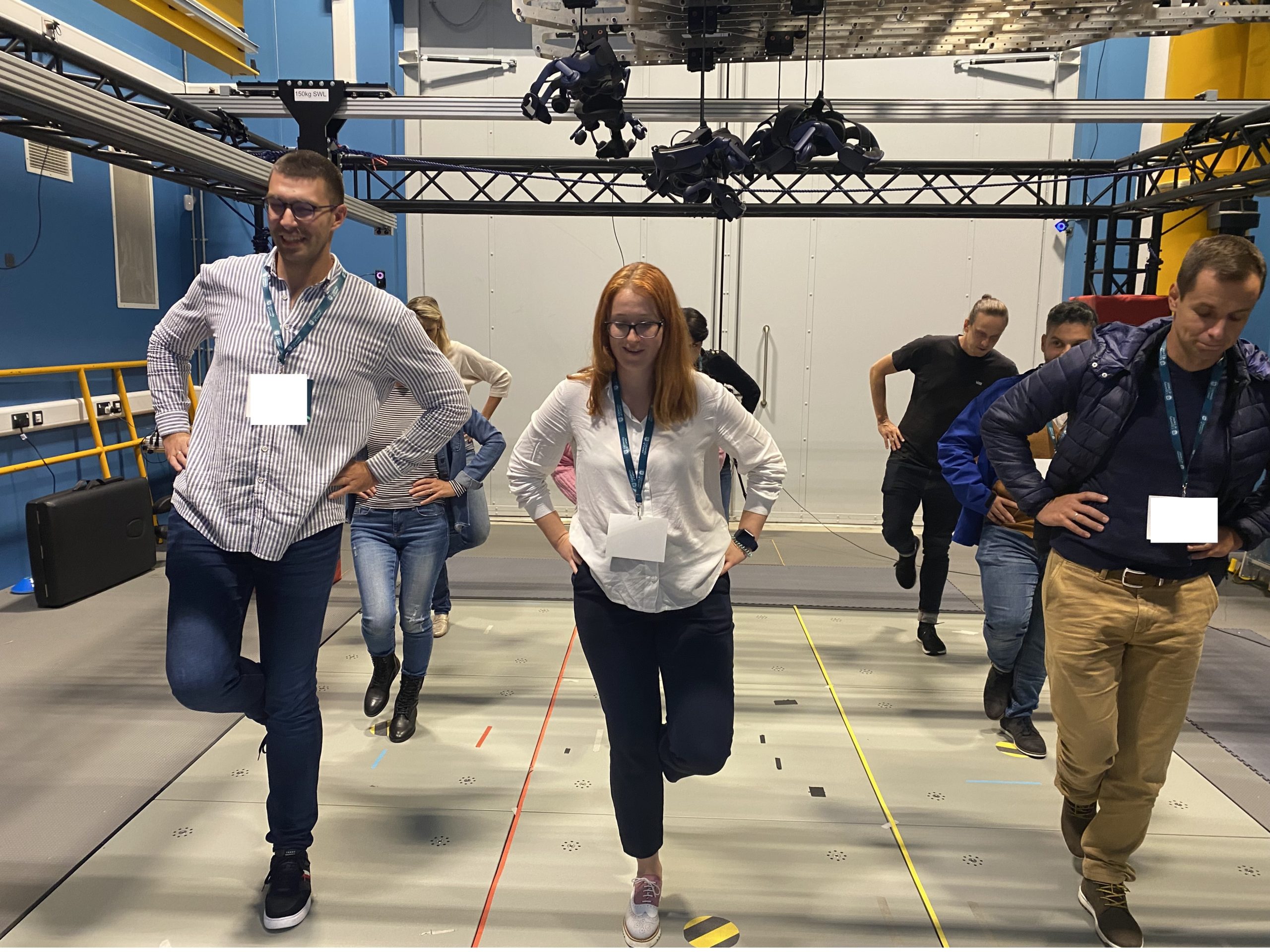Partners from a consortium collaborating on a project to create virtual applications for water engineers spent the afternoon at VSimulators during a week’s residential training visit hosted by the University of Exeter.
Colleagues from six universities participating in the EU-funded WATERLINE project, on which Exeter’s Centre for Water Systems is a partner, found out about the real-world applications of the VSimulators facility and got the chance to try out some of the integrated kit for themselves.
First, they went on the six-degree-of-freedom motion platform, where they experienced the feeling of being on a boat and a train and were challenged to carry out balance exercises on one leg. Volunteers then donned motion capture suits with reflective markers, and participants watched as they danced to music by Abba on the motion platform, while at the same time looking at the biomechanical model moving images appearing on a monitor from the data capture.
Volunteers also tried on biomedical measuring devices, including Trigno Avanti sensors from Delsys, which capture muscle activity and movement data, the fNirs device which uses near-infrared spectroscopy for optical brain monitoring, which is used in psychology applications and colleagues looked at the data that was captured on the monitors.
Finally, attendees explored different VR scenarios together in the headset virtual reality, before touring underneath the machine to see the platform moving from a different angle.
The visit was all part of a project to create innovative VR applications for water engineers, and colleagues from the Centre for Water Systems have previously visited VSimulators for training in virtual reality software.
Waterline is funded by the EU Horizon Europe programme, Exeter’s involvement is funded by the UKRI and the project is coordinated by the Malta College of Arts Science and Technology (MCAST).

